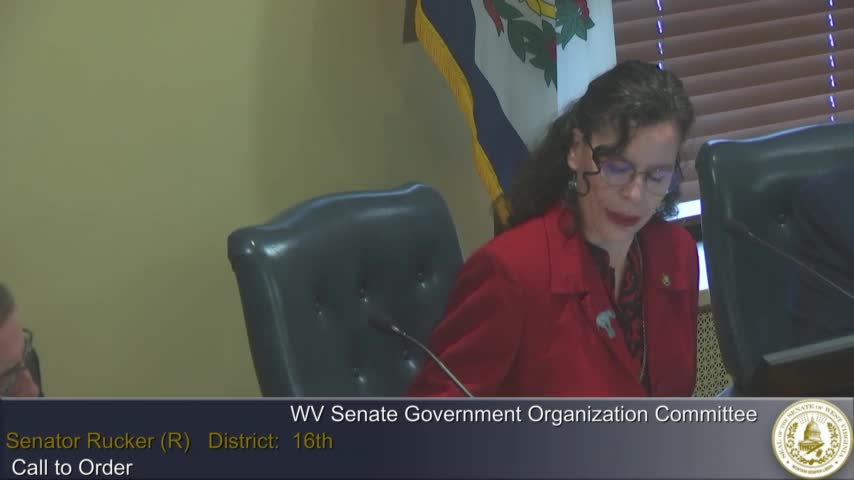Committee advances bill letting owners record removal of unlawful deed restrictions
Get AI-powered insights, summaries, and transcripts
Subscribe
Summary
The Senate Government Organization Committee voted to report Senate Bill 38 to the full Senate with a recommendation that it pass; the bill lets individual owners record an amendment removing unlawful restrictions from deeds and lets common-interest governing bodies remove unlawful restrictions by board action.
The Senate Government Organization Committee voted to report Senate Bill 38 to the full Senate with a recommendation that it do pass and to first refer the bill under its original double committee reference to the Judiciary Committee. The motion was adopted by voice vote.
Senate Bill 38 would create a new article in state code implementing a uniform law that allows a property owner to record an amendment removing any “unlawful restriction” from the deed reflecting the owner's title to the owner's property. The bill also authorizes the governing body of a common-interest property (for example, a condominium association or homeowners association) to remove unlawful restrictions from the common-interest governing instrument by following the bill’s prescribed procedure.
The bill defines an unlawful restriction as a condition or provision that would interfere with sale or occupancy of real property based on race, color, religion, national origin, disability or other personal characteristics and that is also a violation of state or federal law. "This bill creates a new article and code implementing a uniform law that allows a property owner to record an amendment that removes any unlawful restriction," Counsel told the committee when introducing the measure.
Committee members asked whether the restrictions are not already ineffective by operation of law. In response, Counsel said, "Correct. They are," and explained the bill is permissive: "It allows people to do that if they want to. I mean, those restrictions still are in the written deed very often, and it allows people to actually record the amendment that says I don't agree with that." In other words, the measure provides a mechanism to produce a public record — an amendment — showing the owner disavows the restriction even if the restriction is already unenforceable under state or federal law.
The committee record shows the bill tracks a model act prepared by the Uniform Law Commission and that a version of the measure was introduced last year as Senate Bill 494 and "passed the Senate 30-4," Counsel said. For common-interest properties the measure requires board action rather than allowing a single owner to change declarations unilaterally.
The committee formally moved that SB 38 be reported to the full Senate with a recommendation that it pass and that it first be referred to the Judiciary Committee under its original double reference; the motion was adopted by voice vote. The Judiciary referral is procedural and does not itself change the bill’s text.
The committee did not take further amendments during the meeting. The bill will next appear on the Senate calendar and, if referred by the full Senate, proceed through the Judiciary Committee as directed by the committee motion.
